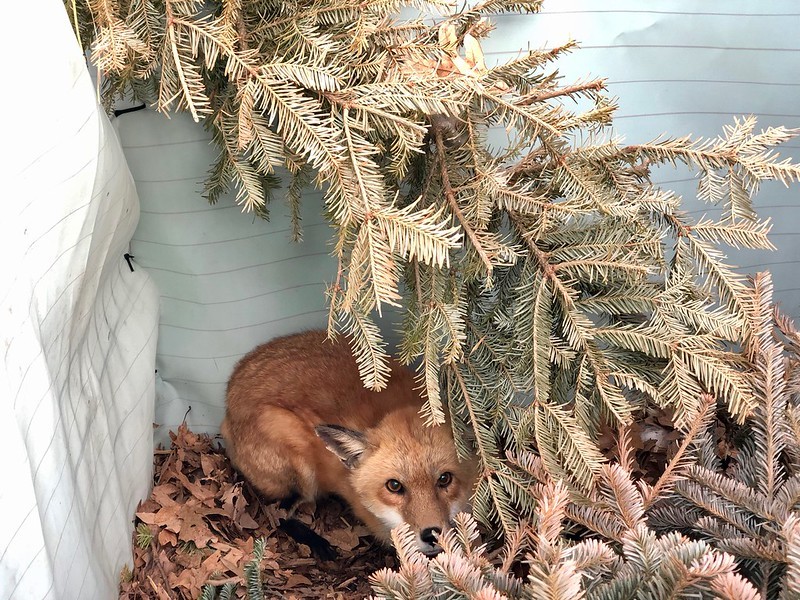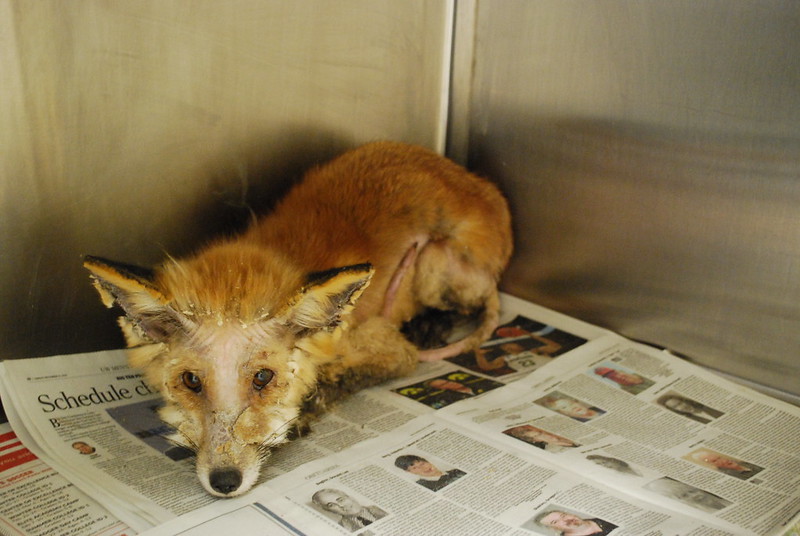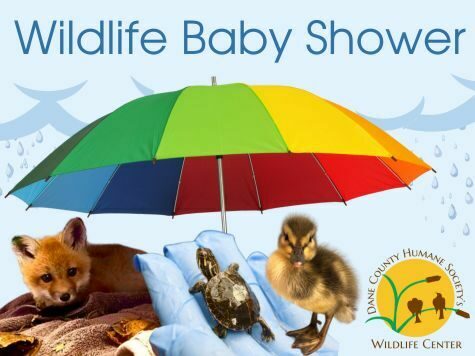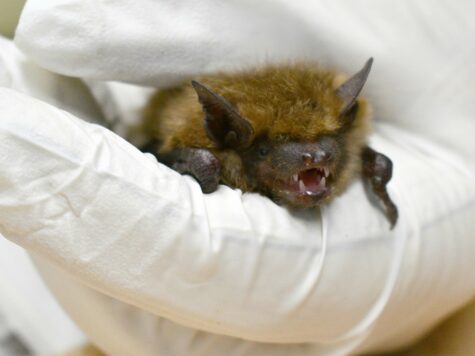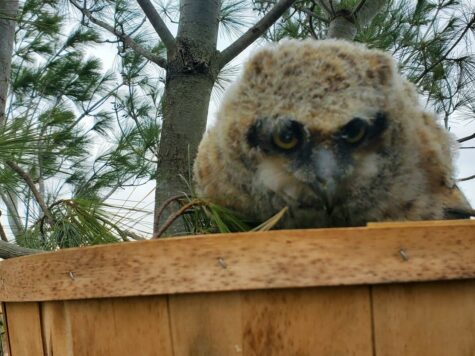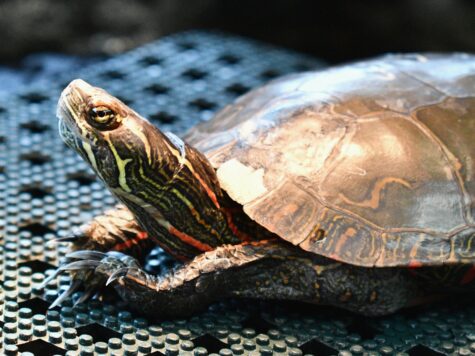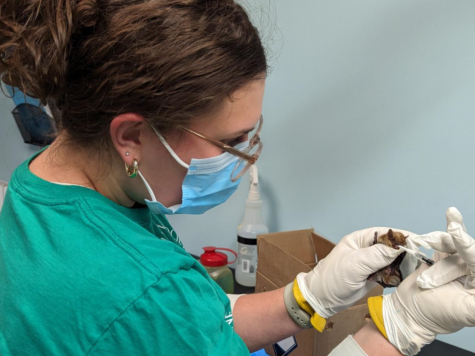For Wisconsin wildlife, colder weather can mean additional risks and challenges to survival. Sarcoptic mange, a parasitic infection seen most often in our fox and coyote patients, can become a particularly serious issue once the temperature drops. In an animal with mange, parasitic mites burrow into the skin and cause extreme irritation, which leads to a buildup of crusts on the skin and fur loss. In severe cases, skin around the eyes can become crusted over making it difficult for the animal to see. Additionally, this skin irritation can cause excessive scratching, which can break the skin and lead to secondary infections.
Individual animals that are otherwise healthy with strong immune systems have a better chance of survival during warmer months. While mange is seen year-round, it is in cold weather that the effects of mange become much more serious. During the winter, animals that have not been able to grow a thick winter coat due to mange are much less likely to survive. These animals should be brought to a licensed rehabilitator for treatment.
Containing a coyote or fox with mange presents its own challenges. In Wisconsin it is not legal to trap animals without a license, except when a landowner sets a live trap on their own land to capture a “nuisance animal.” With this exception, a landowner can place a live trap for an infected fox or coyote and bring the animal to a Wildlife Center for rehabilitation. The assistance of the public is key to noticing and trapping animals with mange, which would otherwise not survive the winter.
If a live trap is used, the person(s) placing it must own the land the trap is on, be able to check the trap every 1-2 hours during the winter, and release any healthy non-target animals as soon as possible and on the same land. Traps can be placed near where the animal has been spotted and covered with natural materials to help blend in with the surroundings. Food such as canned cat or dog food, or cooked boneless chicken can be placed inside the trap.
If you are not able to safely place and monitor a trap, continue to watch the animal and contact Dane County Humane Society’s Wildlife Center at (608) 287-3235 if you observe that the coyote or fox no longer runs away when approached. At that point the animal may be able to be contained using another method. Do not attempt to medicate the animal in the wild. Leaving medicated food out can lead to toxicity and death for other wildlife or domestic animals that may consume it.
If you see a fox or coyote with signs of mange, download our full set of instructions here: https://www.giveshelter.org/assets/documents/Fox-or-Coyote-with-mange.pdf
